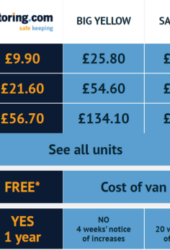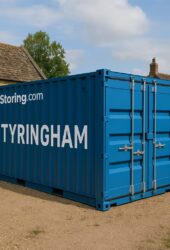Read practical steps, strategies and insights to help you get started on your journey saving for a house so you can to own your own home.
86% of people would rather own their own home than rent, and yet the rate of home ownership in England has declined 71% since 2003. Fewer of us are achieving the dream of owning a home these days for a number of reasons, including the estatcost-of-living crisis and a lack of affordable first-home housing on the market.
Does that mean it’s impossible to save for a house? Absolutely not. You can save for a house, but you do need to do it with strategy so that you can actively achieve such a major goal.
Saving for a house is not just about putting aside a little bit of money every month, it’s about looking at all the financial habits you have and adjusting them so they are all getting you closer to your goal. If you do it right, you don’t have to sacrifice all your treats, or get several extra jobs – instead you can make conscious choices and actively carve a path towards this common dream.
Let’s take a look at how to strategically work towards the target of home ownership:
Setting Your Goal
The basics of your home buying plan revolve around a better understanding of your home buying goal amount. It’s a bit like putting a postcode into a GPS so you know where you’re going.
To create a goal you need to have an idea of the kind of house you can afford, including the mortgage, the monthly bills and other costs. You can get some advice on this from estate agents and financial advisors.
Then, once you have an idea of the property you can likely afford, and the size that you want to aim for, you’ll know roughly the deposit you need for your desired property. You’ll also need to factor in additional moving costs such as removals, solicitor’s fees and stamp duty. You may also have to plan for renovation costs if you are considering a project, which can be a good way to get on the housing ladder if you can do some of the work yourself.
Budgeting To Reach your Goal
Once you know your goal amount you need to create a budgeting plan so that you can strategically save for your dream home.
You’ll need to start tracking all your expenses so you know what you are spending your money on, including little treats like take-aways and regular coffees, as well as the bigger costs like rent. You can use apps to track your financial habits, which can make it really easy to see exactly where every penny goes.
Once you have tracked all your expenses you can then get a clear idea of areas where you can cut back, enabling you to save. It could be a case of looking for a cheaper version of a service you already have, like a gym. It could be halving what you spend on coffee by taking a flask into work a few times a week. You might also find that like many of us, you don’t actually need a subscription to every film and tv streaming service, and you can make do with only one.
After you have tracked your finances and had a look into areas you can save, make a realistic savings plan based on the information you have gathered. It is important to have a plan you can stick to comfortably, that doesn’t leave you struggling for money. You can also top it up with help from app features like spare change round-ups, which save the money left over from the nearest pound on every purchase you make.
Boosting Your Income
As well as the money you have coming in, you can also boost your income to increase the amount you have to reach your goal of owning your own home. You can do this with side hustles, which are jobs you do in addition to your main job. It could be anything from selling crafts or doing freelancing gigs, to working a few hours at a second job. In fact, working more hours at your regular job can also be a great financial boost for your house-saving goal, and requires less initial effort than starting a side hustle.
Selling For Success
When it comes to saving up money for your new home, every pound counts. You’d be surprised at just how much you can earn just by selling items you don’t need any more.
To get your house saving plans off to a head start you could set aside some time to declutter your home. Go through every closet, storage nook, even your shed, and start collecting up items that you no longer want or need. You can then sell them online, or locally, using an app, or going to a boot sale – there will be someone who wants to pay you something for your stuff. It’s such a simple and easy way to improve the organisation of your home, whilst also building a little starter nest egg for your house buying goals.
Managing Debt
Unfortunately, many of us don’t start our journey towards owning a home ready to save. Sometimes, debt is already in place, and that debt has to be dealt with first, before you can properly save for your perfect home. This is important not only in regards to saving, but also to help with mortgage applications in the future.
Clearing high interest debts like credit cards or high interest loans should be your priority. Ideally, though, you can get advice from a financial advisor or free debt advice service, enabling you to find out the best way to handle your individual debt situation.
Paving The Path To Home Ownership: You Can Achieve It With Clever Saving
Owning a home is not just a pipe dream, it is completely achievable. Will it take planning and discipline? Absolutely. But if you want to own a home more than anything else, you can get there. With clever saving, debt management and budgeting, you’re much more likely to get there quicker.
Stay focused, stick to your savings plan and keep your goal in mind – you’ll have found your first home in no time.





